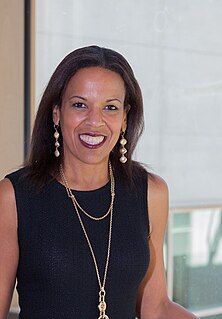
Probiotics are live microorganisms promoted with claims that they provide health benefits when consumed, generally by improving or restoring the gut microbiota. Probiotics are considered generally safe to consume, but may cause bacteria-host interactions and unwanted side effects in rare cases. There is some evidence that probiotics are beneficial for some conditions, but there is little evidence for many of the health benefits claimed for them.
Prebiotics are compounds in food that induce the growth or activity of beneficial microorganisms such as bacteria and fungi. The most common example is in the gastrointestinal tract, where prebiotics can alter the composition of organisms in the gut microbiome.

Gutmicrobiota are the microorganisms, including bacteria and archaea, that live in the digestive tracts of vertebrates including humans, and of insects. Alternative terms include gutflora and gutmicrobiome. The gastrointestinal metagenome is the aggregate of all the genomes of gut microbiota. In the human, the gut is the main location of human microbiota. The gut microbiota has broad impacts, including effects on colonization, resistance to pathogens, maintaining the intestinal epithelium, metabolizing dietary and pharmaceutical compounds, controlling immune function, and even behavior through the gut-brain axis.
Dysbiosis is characterized by a disruption to the microbiome resulting in an imbalance in the microbiota, changes in their functional composition and metabolic activities, or a shift in their local distribution. For example, a part of the human microbiota such as the skin flora, gut flora, or vaginal flora, can become deranged, with normally dominating species underrepresented and normally outcompeted or contained species increasing to fill the void. Dysbiosis is most commonly reported as a condition in the gastrointestinal tract, particularly during small intestinal bacterial overgrowth (SIBO) or small intestinal fungal overgrowth (SIFO).
Synbiotics refer to food ingredients or dietary supplements combining probiotics and prebiotics in a form of synergism, hence synbiotics. The synbiotic concept was first introduced as "mixtures of probiotics and prebiotics that beneficially affect the host by improving the survival and implantation of live microbial dietary supplements in the gastrointestinal tract, by selectively stimulating the growth and/or by activating the metabolism of one or a limited number of health-promoting bacteria, thus improving host welfare". As of 2018, the research on this concept is preliminary, with no high-quality evidence from clinical research that such benefits exist.

The Human Microbiome Project (HMP) was a United States National Institutes of Health (NIH) research initiative to improve understanding of the microbiota involved in human health and disease. Launched in 2007, the first phase (HMP1) focused on identifying and characterizing human microbiota. The second phase, known as the Integrative Human Microbiome Project (iHMP) launched in 2014 with the aim of generating resources to characterize the microbiome and elucidating the roles of microbes in health and disease states. The program received $170 million in funding by the NIH Common Fund from 2007 to 2016.

Microbiota are the range of microorganisms that may be commensal, symbiotic, or pathogenic found in and on all multicellular organisms, including plants. Microbiota include bacteria, archaea, protists, fungi, and viruses, and have been found to be crucial for immunologic, hormonal, and metabolic homeostasis of their host.

Bifidobacterium is a genus of gram-positive, nonmotile, often branched anaerobic bacteria. They are ubiquitous inhabitants of the gastrointestinal tract though strains have been isolated from the vagina and mouth of mammals, including humans. Bifidobacteria are one of the major genera of bacteria that make up the gastrointestinal tract microbiota in mammals. Some bifidobacteria are used as probiotics.

Geoffrey von Maltzahn is an American biological engineer and businessman in the biotechnology and life sciences industry who has founded a number of companies including Indigo Agriculture, Sana Biotechnology, Kaleido Biosciences, Seres Therapeutics, Axcella Health, Generate Biomedicines and Tessera Therapeutics. He has over 200 bioengineering and biotechnology patents and applications.

The gut–brain axis is the two-way biochemical signaling that takes place between the gastrointestinal tract and the central nervous system (CNS). The term "gut–brain axis" is occasionally used to refer to the role of the gut microbiota in the interplay as well. The "microbiota–gut–brainaxis" explicitly includes the role of gut microbiota in the biochemical signaling events that take place between the GI tract and the CNS. Broadly defined, the gut–brain axis includes the central nervous system, neuroendocrine system, neuroimmune systems, the hypothalamic–pituitary–adrenal axis, sympathetic and parasympathetic arms of the autonomic nervous system, the enteric nervous system, vagus nerve, and the gut microbiota.
Bacteriotherapy is the purposeful use of bacteria or their products in treating an illness. Forms of bacteriotherapy include the use of probiotics, microorganisms that provide health benefits when consumed; fecal matter transplants (FMT) /intestinal microbiota transplant (IMT), the transfer of gut microorganisms from the fecal matter of healthy donors to recipient patients to restore microbiota; or synbiotics which combine prebiotics, indigestible ingredients that promote growth of beneficial microorganisms, and probiotics. Through these methods, the gut microbiota, the community of 300-500 microorganism species that live in the digestive tract of animals aiding in digestion, energy storage, immune function and protection against pathogens, can be recolonized with favorable bacteria, which in turn has therapeutic effects.

Karen Nelson is a Jamaican-born American microbiologist who was formerly president of the J. Craig Venter Institute (JCVI). On July 6, 2021 she joined Thermo Fisher Scientific as Chief Scientific Officer.

Curtis Huttenhower is a Professor of Computational Biology and Bioinformatics in the Department of Biostatistics, School of Public Health, Harvard University.
B. Brett Finlay, is a Canadian microbiologist well known for his contributions to understanding how microbes cause disease in people and developing new tools for fighting infections, as well as the role the microbiota plays in human health and disease. Science.ca describes him as one of the world's foremost experts on the molecular understanding of the ways bacteria infect their hosts. He also led the SARS Accelerated Vaccine Initiative (SAVI) and developed vaccines to SARS and a bovine vaccine to E. coli O157:H7. His current research interests focus on pathogenic E. coli and Salmonella pathogenicity, and the role of the microbiota in infections, asthma, and malnutrition. He is currently the UBC Peter Wall Distinguished Professor and a Professor in the Michael Smith Laboratories, Microbiology and Immunology, and Biochemistry and Molecular Biology, and Co-director and Senior Fellow for the CIFAR Humans and Microbes program. He is also co-author of the book Let Them Eat Dirt: Saving Your Child from an Oversanitized World and The Whole-Body Microbiome: How to Harness Microbes - Inside and Out - For Lifelong Health. Finlay is the author of over 500 publications in peer-reviewed journals and served as editor of several professional publications for many years.
Second Genome is a venture capital funded, life sciences research company based in South San Francisco. The company's focus is on the development and exploitation of a research platform which facilitates the identification and elucidation of relationships between human physiology and the human microbiota, and it has a long term goal of becoming a drug development company. The name "second genome" comes from the notion that humans have, effectively, two genomes: the native human genome, and the more diverse set of genomes carried by the human microbiota.
Emily P. Balskus is an American chemical biologist, enzymologist, microbiologist, and biochemist born in Cincinnati, Ohio in 1980. She has been on the faculty of the Chemistry and Chemical Biology department of Harvard University since 2011 and is currently the Morris Kahn Professor. She has published more than 80 peer-reviewed papers and three book chapters. Since 2012 she has been invited to give over 170 lectures, has held positions on various editorial boards, and served as a reviewer for ACS and Nature journals among others. Balskus also currently serves as a consultant for Novartis, Kintai Therapeutics, and Merck & Co.

Mariana Matus is a Mexican biologist and the CEO and co-founder of Biobot Analytics, a startup that aims to help governments tackle the opioid crisis and the COVID-19 pandemic by analyzing sewage samples.
Emma Allen-Vercoe is a British-Canadian Molecular biologist who is a Professor and Canada Research Chair at the University of Guelph. Her research considers the gut microbiome and microbial therapeutics to treat Escherichia coli.

Maria Gloria Dominguez-Bello is a Venezuelan-American microbial ecologist that has worked on adaptations of gut fermentation organs in animals, gastric colonization by bacteria, assembly of the microbiota in early life, effect of practices that reduce microbiota transmission and colonization in humans, and effect of urbanization. She is the Henry Rutgers Professor of Microbiome and Health at Rutgers University, New Brunswick. She is the Director of the New Jersey Institute for Food, Nutrition, and Health. Her lab at Rutgers collaborates in multidisciplinary science, integrating microbiology, immunology, pediatrics, nutrition, anthropology, environmental engineering and architecture/urban studies, and microbial ecology.

Peter J. Turnbaugh is a microbiologist and a Professor at University of California, San Francisco. He is known for his research on the metabolic activities performed by the trillions of microbes that colonize humans' adult bodies. Turnbaugh and his research group use interdisciplinary approaches in preclinical models and human cohorts to study the mechanisms through which the gut microbiome influences nutrition and pharmacology.












